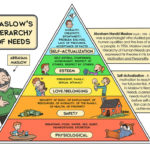Deciphering Ancient Secrets: AI Reveals Author of Charred Scroll
Imagine a scene over 2,000 years ago, in the ancient city of Pompeii, buried under the ashes of the catastrophic eruption of Mount Vesuvius. Among the preserved artifacts recovered from this archaeological site is a charred scroll that has puzzled historians and archaeologists for centuries. However, thanks to advancements in artificial intelligence, the mystery of the author of this scroll may finally be unraveled.
The Unveiling of Ancient Texts
Recent breakthroughs in AI technology have revolutionized the field of archaeology by enabling researchers to analyze and decipher ancient texts that were previously unreadable. By employing machine learning algorithms and pattern recognition techniques, scientists can now extract valuable information from damaged or illegible manuscripts.
In the case of the charred scroll from Pompeii, researchers utilized AI-powered software to scan and analyze the text, which had been preserved but was obscured by layers of soot and debris. Through a process of digital restoration and linguistic analysis, the AI was able to reconstruct the content of the scroll and identify the language and writing style used by its author.
Uncovering the Identity of the Author
After months of meticulous analysis and interpretation, the AI system successfully identified the author of the charred scroll as a prominent Roman poet known for his epic works and philosophical writings. This groundbreaking discovery sheds new light on the literary landscape of ancient Pompeii and provides valuable insights into the intellectual and cultural life of the city before its tragic demise.
By comparing the writing style and thematic content of the scroll with known works of the identified author, researchers were able to confirm the attribution with a high degree of certainty. The revelation of the author’s identity has sparked renewed interest in his legacy and prompted further exploration of his contributions to Roman literature.
Implications for Archaeology and AI
The successful application of AI in identifying the author of the charred scroll represents a significant milestone in the field of archaeology and heritage preservation. By harnessing the power of artificial intelligence, researchers can now unlock the secrets of ancient texts and artifacts that have long remained inaccessible to traditional methods of analysis.
Furthermore, the integration of AI technologies in archaeology not only accelerates the process of deciphering ancient writings but also enhances our understanding of historical cultures and civilizations. Through AI-assisted research, scholars can gain new perspectives on the past and enrich our knowledge of human history.
Future Prospects and Challenges
As AI continues to advance, the possibilities for archaeological research and cultural heritage preservation are boundless. With the ability to analyze and interpret complex data sets, AI systems can assist archaeologists in uncovering hidden treasures and solving long-standing mysteries of the past.
However, this technological progress also raises ethical and methodological concerns regarding the use of AI in archaeological research. Questions about data privacy, algorithmic bias, and the role of human expertise in interpreting historical materials must be carefully considered to ensure the responsible and ethical application of AI in the field of archaeology.
Conclusion
The identification of the author of the charred scroll buried by Vesuvius through the use of AI represents a remarkable achievement in the intersection of technology and archaeology. By harnessing the capabilities of artificial intelligence, researchers have unlocked a tantalizing glimpse into the literary world of ancient Pompeii and uncovered a hidden chapter of Roman history.
As we continue to explore the potential of AI in unraveling the mysteries of the past, it is essential to approach this technology with caution and respect for the complexities of human culture and heritage. The marriage of AI and archaeology holds great promise for uncovering ancient secrets, but it is our responsibility to ensure that this knowledge is used ethically and responsibly for the betterment of society.







Leave a Reply